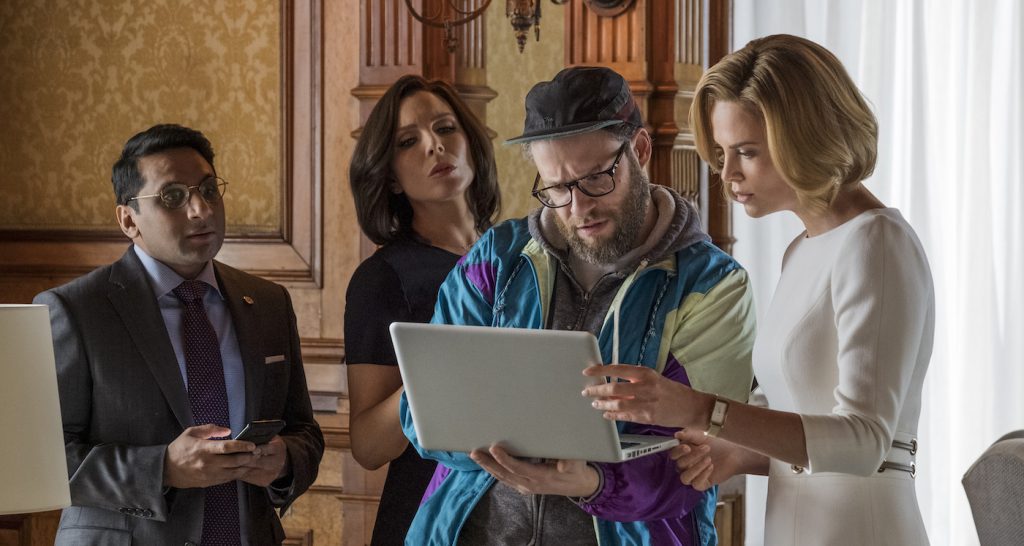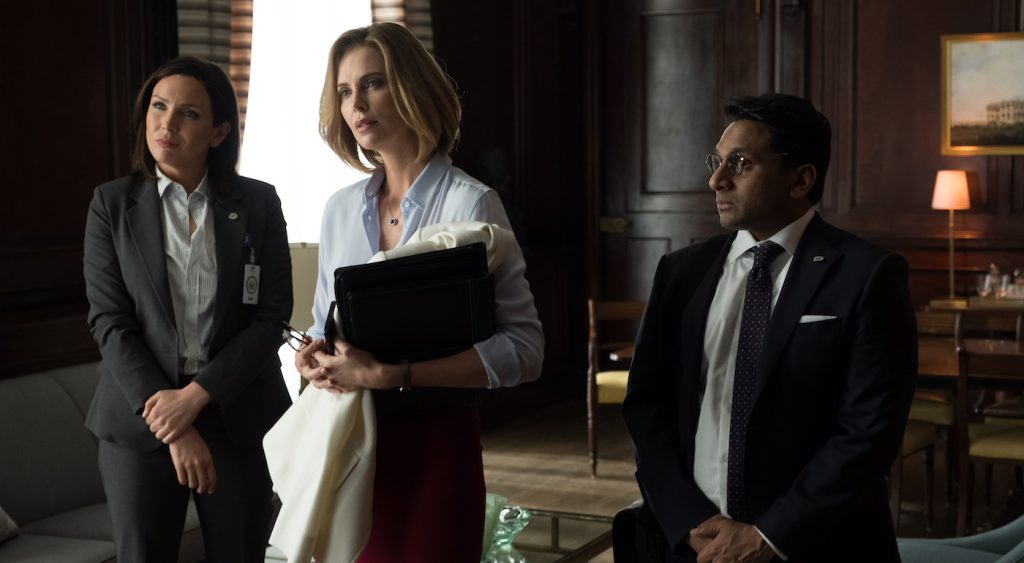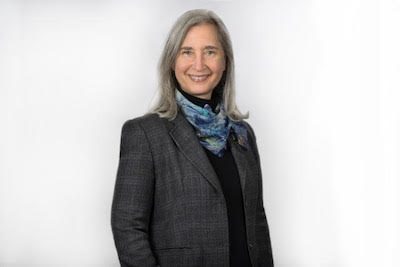Finding the Funny With Long Shot Director Jonathan Levine & Actress June Diane Raphael
Long Shot stars Charlize Theron as Charlotte, an elegant, poised, hyper-competent Secretary of State who wants to run for President and Seth Rogen as Fred, an awkward, shlumpy, but principled journalist. Charlotte hires Fred to help write speeches that will reveal her warmer, more accessible side. It is romantic, it is funny, and it is surprisingly sweet. In an interview with The Credits, director Jonathan Levine and June Diane Raphael, who plays Charlotte’s top aide, talked about classic and modern romantic comedies, finding the heart in comedy, and learning from political advisors.
We are talking in Washington, D.C., where you are surrounded by dedicated, exhausted, but very capable aides like the one you play in the film, June. What kind of research did you do to play the aide to the Secretary of State?
June Diane Raphael: Jonathan [Levine] introduced me to former Secretary of State John Kerry’s chief of staff, Jonathan Finer. He and I spoke and he talked to me a little bit about the schedule and just the intensity of the experience. I was really interested in how formal or informal that dynamic was. It was great to talk to him and listen to his experience, and then he was there a couple of times throughout the shooting. It was wonderful and to know what that life was, and I drew a lot from that.

Jonathan, people love romantic comedies and yet it seems that we have fewer of them these days. What are the challenges in making a romantic comedy that make it so hard to get it right?
Jonathan Levine: I think that it’s an amazing genre to work in, and Hollywood has been making wonderful romantic comedies since the 30s and 40s. We really wanted to go back to films like the ones from the 80s and 90s, when Hollywood was making really good romantic comedies that were heartfelt and funny. So we took it as an opportunity to make something that people hadn’t seen in a while, and to make a romantic comedy that was both romantic and funny. When you do that the audience seems to really respond.
You’ve worked very well with Seth Rogen in 50/50 and The Night Before. What have you learned from him?
JL: He certainly brings out the best in me, just from his way of working. He really is a very hands-on producer and he really knows how to play to your strengths as a filmmaker. He is sort of the comedy guiding light of the movie, you know tonally and coming up with jokes, not just for himself but for other characters.
I really leaned on him for that because he is—shockingly—a lot funnier than me [laughs]. I think that the way I compliment him is that I am able to pursue avenues of heart and emotions, that he might not go after if left to his own device. I can kind of guide him in that direction and I think he’s grateful for it at the end of the day. And I am grateful that our tastes align so much that we can pursue that together.
You talked about the comedies of like the 80s but to me, this harks back to the Tracy/Hepburn era. Do you have a favorite classic romantic comedy?
JL: I really like this movie called Ninotchka. [Director] Ernst Lubitsch was doing really interesting stuff like To Be or Not to Be, where you have these kinds of farcical, absurd movies that are still grounded in reality and that hold up a mirror to reality. That was something that was an interesting reference for me making this. And Adam’s Rib I think is a great romantic comedy. I am trying to think of others, The Philadelphia Story is one of my favorites. I don’t know if The Apartment is a romantic comedy, but I like that one, too.
In Ninotchka, of course, the big turning point is when Melvyn Douglas makes Garbo laugh and that very much harks back to Long Shot.
JL: Yes, absolutely and it’s like they are these star-crossed lovers because of political circumstances, which is the case in Long Shot, too.
This is your first straight-up romantic comedy. Did you approach the look of the film differently to establish the tone or the world of the story?
JL: I don’t really reverse-engineer to fit into a genre, I mean I knew that you want some signposts of romantic comedies—you want it to feel lush and you want big party sequences and wish-fulfillment, and places that you look at and say, “I wish I could be there.” But all of my movies have a pretty naturalistic kind of grounded look, so I just kind of start from there. I wanted foremost to have it feel real and grounded. So we start from there. My cinematographer, Yves Bélanger, never shot a comedy before. He has exquisite taste. It looks real first and foremost.
JDR: And one of the reasons the movie really succeeds is when you shoot it like Jonathan shot it, it’s beautiful to watch but you’re also laughing. The comedy is really sharp, and the audience is even more invested. They’re so lost in the ride and the beauty and the hope of it all.
One of the things that I particularly like about the movie is the outstanding cast of supporting characters. June, your character has her own romantic comedy story.
JDR: I don’t know many actors who think of themselves as supporting characters. You take whatever real estate you have and are fully invested in telling that story. I love the relationship that we found between Maggie and Tom, and I love working with Ravi Patel and building this weird dynamic between our characters. The scene that’s in the movie was really just a couple of sentences on the page, and that’s an example of the way that the team, the staff, the producers and Jonathan, work and why their movie has that really special feel. We started with something very simple and then found the rest of the scene. We were able to do something that was surprising to all of us and that was so much fun.

Why was it important to give this a political setting? Wasn’t that risky?
JL: It is political, but it is not tied to a particular politician or time. Politics started as a backdrop for a modern fairy tale in this movie. That’s what Dan Sterling, who wrote the original script, was using it to tell like a classical kind of tale, set against the backdrop of politics.
There were political insights in it, but it was originally written before this administration and we really worked to make it reflective of the moment in which we were in. It was challenging at the beginning. Most people go to the movie to get away from stuff like that, but at the same time what was originally challenging became an opportunity because we saw that you could use this movie to hold up a mirror to the absurdity of society.
And you could also use it to tell an inspirational story about a woman overcoming the obstacles that are in a misogynistic, male-dominated world. So there were certainly times where we felt overwhelmed by what was happening in everyday politics, but it really became a great tool for us, and I think we kind of worked our way out of that situation and were able to use it to our advantage.
Featured image: Fred Flarsky (Seth Rogen) and Charlotte Field (Charlize Theron) in Long Shot. Photo credit: Murray Close



